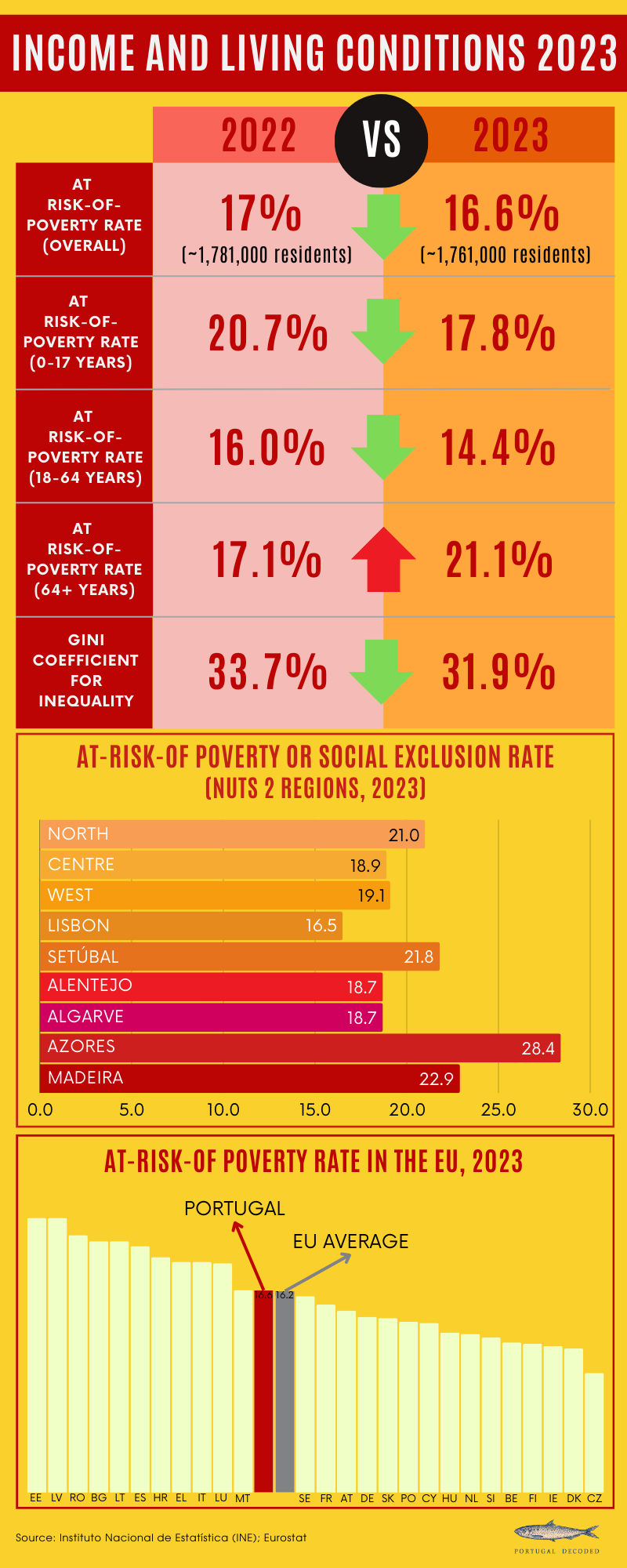The recent Income and Living Conditions survey, carried out in 2024, on income from 2023, highlights the following key insights about poverty, inequality, and income trends in 2023:
Modest Poverty Reduction
The at-risk of poverty rate decreased slightly to 16.6% in 2023, reflecting some improvement, though 1.76 million people remain affected.
Uneven Progress Across Age Groups
Poverty declined among children and working-age adults but increased significantly among the elderly, highlighting a disparity in progress.
Employment Impact
Both employed and unemployed populations saw a reduction in poverty rates, suggesting improved income levels or social safety nets.
Role of Social Transfers
Social benefits played a larger role in reducing poverty compared to the previous one, indicating their growing importance in supporting vulnerable populations.
Improved Income Inequality
Inequality metrics, such as the Gini coefficient and income ratios, showed improvement, reflecting a more equitable income distribution.
Rising Incomes
Both median and average incomes increased in 2023, driven by economic growth and higher earnings.
Overall, the survey reveals progress in poverty reduction and income equality, but it also highlights persistent challenges, particularly for the elderly and socially excluded groups.

According to PORTUGAL DECODED, experts explain the rise in the at risk of poverty rate among the elderly, as being due to the fact that pensions are calculated by the INE, which underwent a change this year, and the fact that the poverty threshold rose from 591 euros to 632 euros in one year. “If we look at last year’s survey, it is possible to see that around 100,000 elderly people were living within that income range (between 591 euros and 632 euros)” an expert told Público. Experts suggest that this rise might be linked to migration, pointing out that the increase was strongly concentrated in the Lisbon Metropolitan Area, a region with a higher concentration of migrants.
With regards to the survey, the question was very much how have political agents reacted to the new figures, only last week President Marcelo Rebelo de Sousa visited a food bank last week and he highlighted that poverty “is higher among the elderly”. He also noted that in Portugal, “there are signs of economic growth, but this is a very bad moment for Europe.” He added: “In Portugal, we have endured as best as possible, but the consequences are being felt, especially by those with the least, the most vulnerable.” Meanwhile, the Secretary-General of the Communist Party (PCP), Paulo Raimundo, argued that a “wage shock” is necessary to improve living conditions. Regarding the cost of this proposal, Raimundo asserted that the country has the “means, conditions, and resources” to raise the national minimum wage to 1,000 euros, emphasizing that, on average, “businesses’ payroll costs account for around 18% of their total expenses.” The Government and other political parties have not been cited here since they have not commented on the figures.
The full report can be read here: https://www.ine.pt/xportal/xmain?xpid=INE&xpgid=ine_destaques&DESTAQUESdest_boui=646323673&DESTAQUESmodo=2&utm_source=substack&utm_medium=email
















